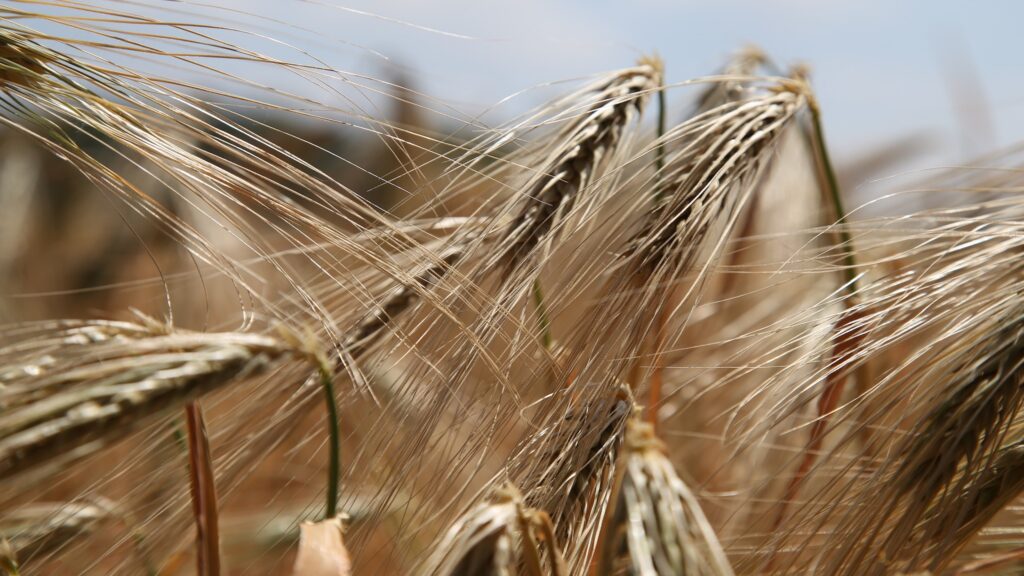
In recent years, the number of people affected by coeliac disease, wheat allergy or gluten or wheat sensitivity has risen sharply. But why is this the case? Could it be that modern wheat varieties contain more immunoreactive protein than in the past? Results from a study by the Leibniz-Institute for Food Systems Biology at the Technical University of Munich and the Leibniz Institute of Plant Genetics and Crop Plant Research are helping to answer this question.
Wheat grains contain about 70 percent starch. Their protein content is usually 10 to 12 percent. Gluten accounts for the lion’s share of proteins, at around 75 to 80 percent. Gluten is a compound mixture of different protein molecules. These can be roughly divided into two subgroups: “gliadins” and “glutenins.”
It has long been known that wheat proteins can trigger disorders such as coeliac disease or wheat allergies. Approximately 1 or 0.5 percent of the adult population is affected worldwide. In addition, non-celiac gluten sensitivity (NCGS) is becoming increasingly important in the western world.
“Many people fear that modern wheat varieties contain more immunoreactive proteins than in the past and that this is the cause of the increased incidence of wheat-related disorders,” says Darina Pronin from the Leibniz-Institute for Food Systems Biology, who was significantly involved in the study as part of her doctoral thesis. Where gluten is concerned, the protein group of gliadins in particular is suspected of causing undesired immune reactions, explains the food chemist.
60 wheat varieties from the period 1891 — 2010 analyzed
But how big are the differences between old and new wheat varieties really? In order to help clarify this, Katharina Scherf and her team at the Leibniz-Institute for Food Systems Biology investigated the protein content of 60 preferred wheat varieties from the period between 1891 and 2010. This was made possible by the Leibniz Institute of Plant Genetics and Crop Plant Research. It has an extensive seed archive. From the archive, the researchers selected five leading wheat varieties for each decade of the 120 years examined. In order to generate comparable samples, they cultivated the different varieties in 2015, 2016 and 2017 under the same geographical and climatic conditions.
Analyses by the team of scientists show that, overall, modern wheat varieties contain slightly less protein than old ones. In contrast, the gluten content has remained constant over the last 120 years, although the composition of the gluten has changed slightly. While the proportion of critically viewed gliadins fell by around 18 percent, the proportion of glutenins rose by around 25 percent. In addition, the researchers observed that higher precipitation in the year of the harvest was accompanied by a higher gluten content in the samples.
Environmental conditions are more relevant than the variety
“Surprisingly, environmental conditions such as precipitation had an even greater influence on protein composition than changes caused by breeding. In addition, at least on the protein level, we have not found any evidence that the immunoreactive potential of wheat has changed as a result of the cultivation factors,” explains Katharina Scherf, who is now continuing her research as a professor at the Karlsruhe Institute of Technology (KIT). However, Scherf also points out that not all protein types contained in wheat have been investigated with regard to their physiological effects. Therefore, there is still a lot of research to be done.
 Blood Sugar Stability the Organic Way: Low-Glycemic Foods and Meal Ideas
Blood Sugar Stability the Organic Way: Low-Glycemic Foods and Meal Ideas Animal vs. Plant Protein: These Protein Sources Are Not Nutritionally Equivalent
Animal vs. Plant Protein: These Protein Sources Are Not Nutritionally Equivalent Billions of nanoplastics released when microwaving baby food containers
Billions of nanoplastics released when microwaving baby food containers Soaking Potatoes In Water Before Frying Reduces Acrylamide
Soaking Potatoes In Water Before Frying Reduces Acrylamide